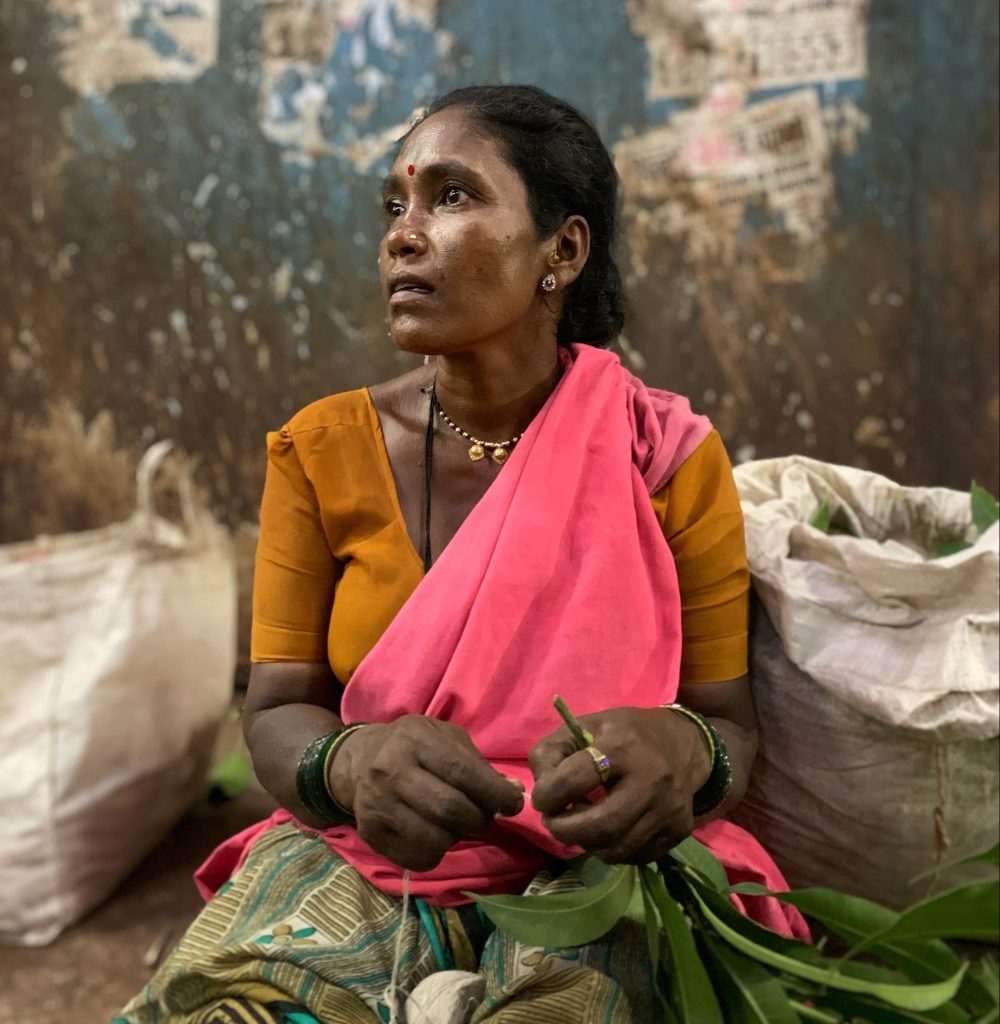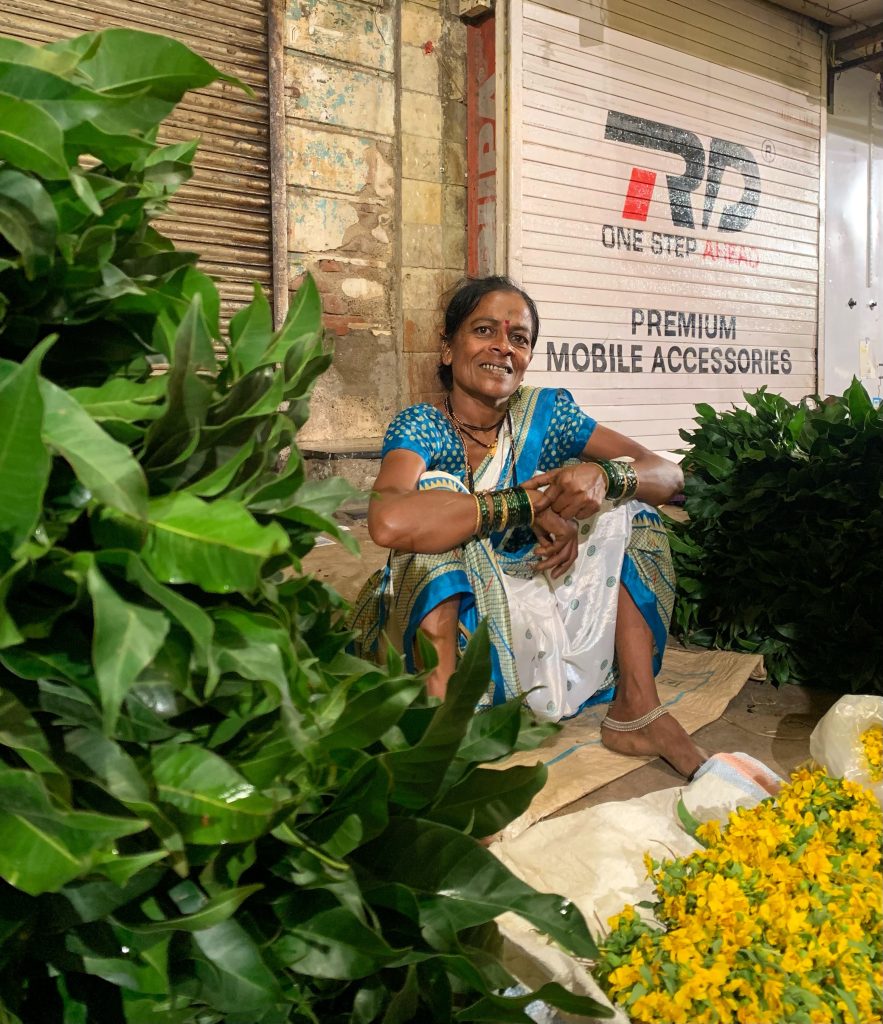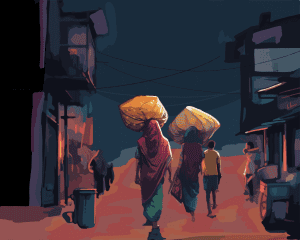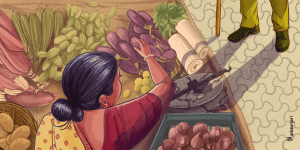[Readmelater]
For Women Hawkers In Mumbai’s Flower Market, The Day Begins In Jungles
Despite the enervating humidity of the mid-October night in Mumbai, Bhimabai Zunjure, 40, is deftly working a mound of mango leaves into neat bunches. She sits on the bridge leading to the Dadar flower market, and looks up from her work to onl
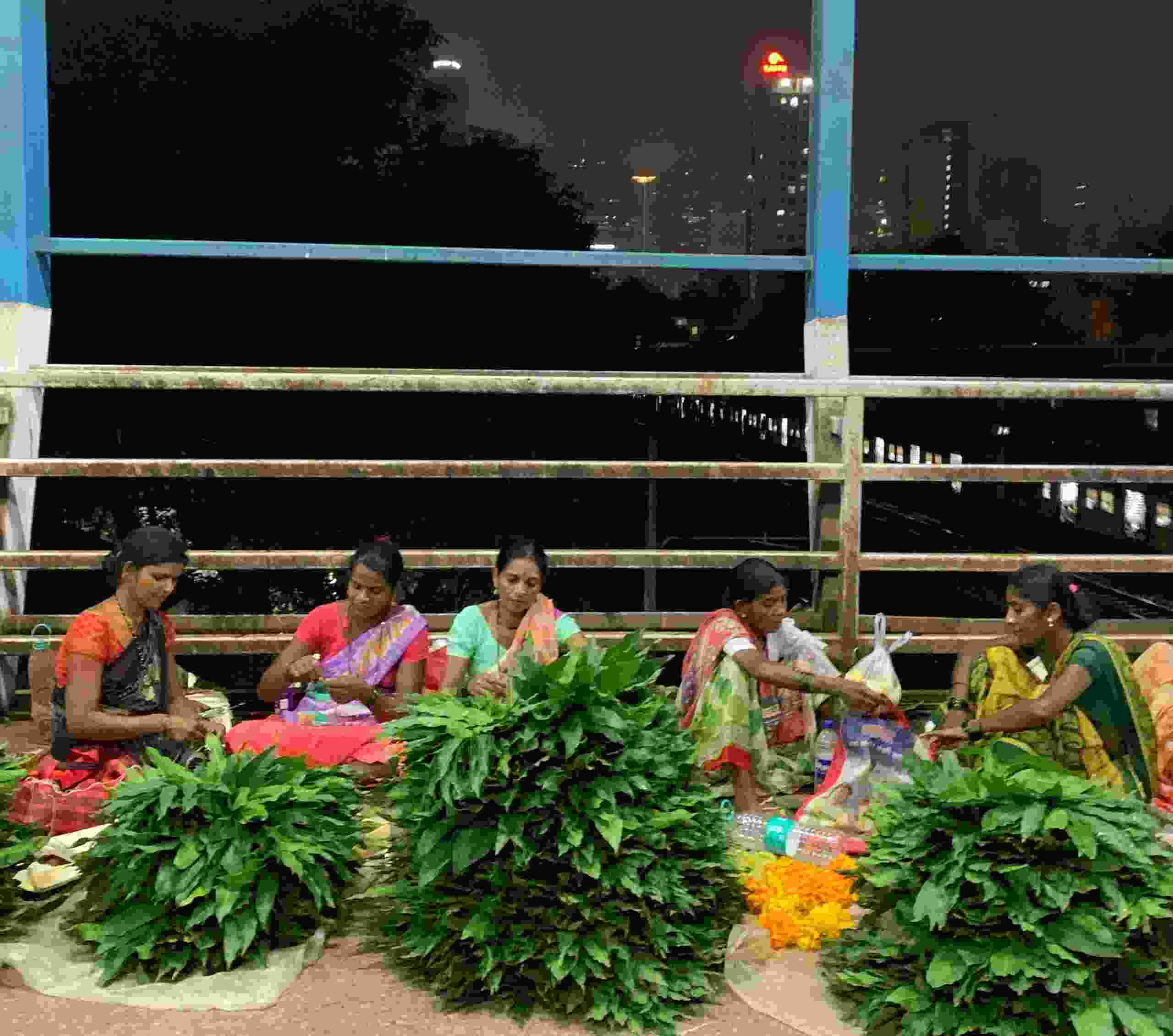
Katkari women flower sellers selling their produce on the railway bridge in Dadar at midnight / Pradeep Kokare
Support BehanBox
We believe everyone deserves equal access to accurate news. Support from our readers enables us to keep our journalism open and free for everyone, all over the world.
